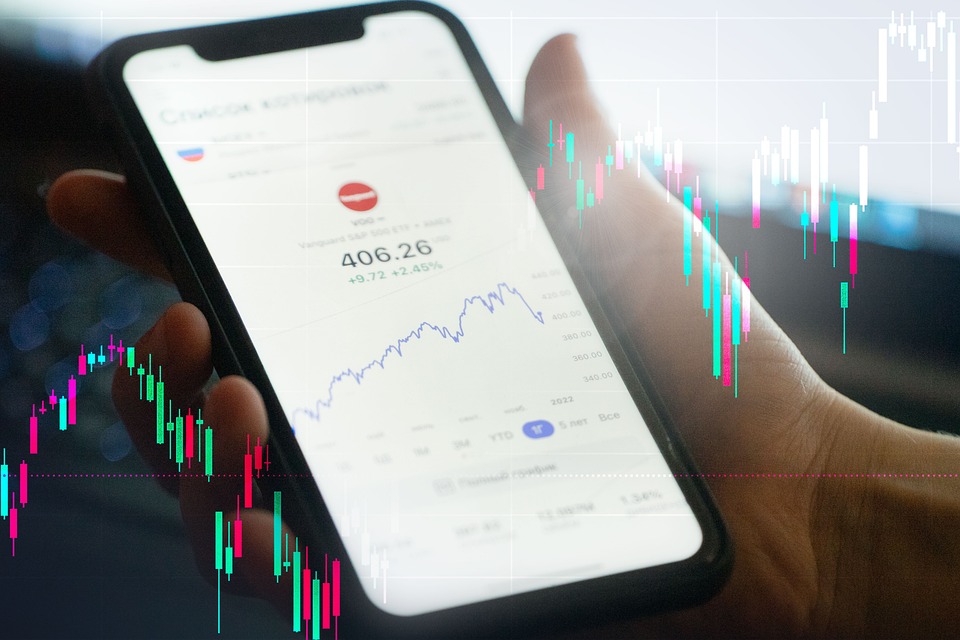Building a Robust Online Presence: Essential SEO Strategies for Malaysian Businesses Dominating Google
In Malaysia’s vibrant and competitive digital marketplace, simply having a website isn’t enough. To truly connect with your target audience and drive sustainable business growth, mastering Search Engine Optimization (SEO) for Google is non-negotiable. As a nation with a unique linguistic blend (Malay, English, Chinese, Tamil), diverse cultural nuances, and rapidly evolving internet usage patterns, Malaysian businesses require a deeply localized and strategic approach. Drawing upon years of experience navigating the complexities of the Malaysian SEO landscape, here are essential, actionable tips to propel your website to the top of Google Search Results Pages (SERPs).
Core SEO Strategies Tailored for Malaysia
1. Deep Dive into Local Search Intent & User Behaviour:
- Beyond Keywords: Go beyond generic keyword research. Use tools like Google Keyword Planner, SEMrush, or Ahrefs filtered for Malaysia. Analyze the intent behind searches. Are users looking for “emergency plumber Kuala Lumpur” (transactional), “best nasi lemak near me” (local), or “how to cook rendang” (informational)? Tailor your content precisely to satisfy these intents.
- Understanding Local Nuances: Recognize regional variations in terminology (e.g., “Klang” vs “Port Klang”, “tapau” vs “bungkus”). Consider festive periods (Hari Raya, CNY, Deepavali, Christmas) and how search behaviour changes. Map out the Malaysian buyer’s journey specific to your industry.
2. Master Multilingual & Cultural Localization (Hyper-Localization is Key):
- Language Priority: Optimize for the primary languages of your target audience. A Bahasa Malaysia primary site is crucial for reaching the widest local audience, often complemented by English sections for specific demographics or industries. For niche markets, consider Mandarin or Tamil versions. Avoid direct translations; provide culturally relevant, native-speaker crafted content.
- Cultural Sensitivity: Imagery, colours, symbols, references, and even humour must resonate locally. Highlight Malaysian landmarks, local success stories, and cultural values. Address pain points familiar to Malaysians (e.g., traffic concerns for service areas, specific product needs).
- Local Structured Data: Implement Schema.org markup (LocalBusiness, Product, Review, Event etc.) accurately using local addresses (including correct district and state formatting), Malaysian phone codes (+60), and localized opening hours considering public holidays.
3. Dominate Google My Business (GMB) & Local SEO:
- Flawless GMB Profile: Claim, verify, and optimize your GMB listing exhaustively. Ensure NAP (Name, Address, Phone) is consistent everywhere (website, directories, social media). Use high-quality photos/videos showcasing your premises, team, and products. Select accurate, specific categories.
- Local Citations: Build listings on reputable Malaysian directories (e.g., Malaysian Industrial Directory, Mudah.my for classifieds), industry-specific listings, and platforms like Foodpanda if applicable. Ensure absolute NAP consistency.
- Local Content & Links: Create content hyper-targeted to Malaysian locations – “Ultimate Guide to Street Food in Penang,” “Essential Plant Care Tips in Malaysia’s Humidity”. Seek backlinks from credible Malaysian websites (local news portals, reputable industry blogs, universities) and community sponsorships.
4. Mobile-First Optimization: Non-Negotiable for Malaysia:
- Google’s Priority: With extremely high smartphone penetration in Malaysia, Google indexes mobile-first. Your website must be fully responsive.
- Core Web Vitals (CWV): Optimize rigorously for Malaysian users. Prioritize LCP (fast-loading main content), FID/INP (responsive interaction), and CLS (visual stability). Account for potentially variable mobile network speeds across regions.
- Mobile UX: Ensure easy navigation, large touch targets, fast-loading pages, simplified forms, and readable text without zooming. Test extensively on various devices used locally.
5. Champion Content Quality & E-A-T (The Core Pillars):
- Solve Problems, Provide Value: Create comprehensive, original content that genuinely answers users’ questions better than competitors. Focus on depth – detailed guides, data-driven insights, unique local perspectives (e.g., “Digital Marketing Budget Planning for Malaysian SMEs”).
- Demonstrate Expertise, Authoritativeness, Trustworthiness (E-A-T):
- Expertise: Showcase author bios with verifiable credentials (team page with linked qualifications, certifications, experience). Reference reliable Malaysian data sources (DOSM, SIRIM reports, Bank Negara stats).
- Authoritativeness: Build genuine editorial backlinks from respected Malaysian sources. Establish thought leadership through contributions to local publications or industry forums.
- Trustworthiness: Display clear contact details (Malaysian address/phone), transparent privacy policies, secure HTTPS, customer reviews/testimonials (especially from local clients), and clear information about your business/services. Avoid misleading claims.
- Originality is Paramount: Conduct unique research, offer fresh case studies from the Malaysian market, or provide novel analysis. Avoid thin or spun content that plagiarizes readily available sources.
6. Sustainable & Ethical Link Building Focus:
- Quality Over Quantity: Prioritize links from reputable, relevant Malaysian websites (.com.my domains, gov.my, edu.my, established news sites, industry associations).
- Earn, Don’t Force: Build relationships. Create exceptional link-worthy content (local research, infographics, tools). Sponsor local events or charities. Engage in genuine community discussions. Avoid manipulative link schemes or low-quality directory spam – Google easily detects this, especially within a specific market like Malaysia.
7. Social Media Signals & Amplification:
- Platform Relevance: Leverage platforms dominant in Malaysia – Facebook remains king, but Instagram, TikTok, and LinkedIn (for B2B) are highly influential.
- Boost Content & Engagement: Promote SEO content (blog posts, guides, videos) on social media to increase visibility, engagement, and drive traffic. Foster communities and interact authentically.
- Secondary Ranking Factor: While Google doesn’t use social counts directly, strong social signals (shares, engagement) increase content reach, potentially leading to organic backlinks and brand searches which are ranking factors.
8. Continuous Monitoring, Analysis & Adaptation:
- Track Malaysia-Specific Metrics: Monitor rankings for Malaysian keywords and local searches using geotargeting in SEO tools (Search Console location filters, SEMrush/Ahrefs position tracking for MY).
- Measure Meaningful KPIs: Focus beyond vanity metrics. Track organic traffic from Malaysia, conversions (calls, form submissions, sales), user engagement metrics (time on site, bounce rate), and visibility in local pack results.
- Stay Agile: Google’s algorithms update constantly. Stay informed through reputable webmaster channels (Google Search Central Blog). Continuously analyze data, test strategies (e.g., new content formats, UX tweaks), and adapt your approach based on performance in the Malaysian context.
Conclusion: Building Lasting SEO Success in Malaysia
Achieving top rankings on Google Malaysia requires a sophisticated, long-term strategy grounded in local understanding, technical excellence, and unwavering commitment to quality. By meticulously implementing these tips – understanding unique Malaysian search intent, embracing multilingual and cultural localization, dominating Google My Business, prioritizing mobile and Core Web Vitals, creating truly valuable E-A-T rich content, building ethical local links, leveraging social media effectively, and committing to continuous adaptation – your business can build a powerful, sustainable online presence. Remember, SEO greatness isn’t achieved overnight but through consistent execution of these foundational principles, positioning your Malaysian brand for visibility, credibility, and growth in the dynamic digital ecosystem.
Frequently Asked Questions (FAQs) About SEO in Malaysia
1. Is SEO really important for my Malaysian business?
Absolutely. Google is the dominant search engine in Malaysia. High organic visibility connects you with potential customers actively searching for your products/services. SEO builds brand credibility, drives targeted traffic, and offers a higher long-term ROI compared to many paid advertising channels.
2. What are the most important ranking factors for Google Malaysia?
While Google’s algorithm uses hundreds of signals, the critical pillars for Malaysia include:
- Relevance & Quality Content: Matching Malaysian search intent with comprehensive, unique content.
- E-A-T (Expertise, Authoritativeness, Trustworthiness): Demonstrated through credentials, authoritative links, and reliable information.
- Mobile Usability & Core Web Vitals: Fast, stable loading and excellent mobile experience.
- Google My Business Optimization: For local searches and brick-and-mortar businesses.
- Hyper-Local Focus: Addressing language, cultural nuances, and location specifics.
- Technical SEO Health: Crawlable, indexable site structure, secure HTTPS.
3. How long does it take to see results from SEO in Malaysia?
SEO is a long-term strategy. Visible improvements often take 3-6 months, but significant results like increased traffic and conversions typically build over 6-12 months and beyond, depending on competition, site age, and the effort invested. Consistency is vital.
4. Should I focus on English or Bahasa Malaysia for my SEO?
This depends entirely on your target audience. To reach the widest Malaysian audience, Bahasa Malaysia (BM) is essential. However, for specific industries (e.g., international trade, luxury goods, tech), English might be more appropriate. Many successful businesses have multilingual sites or dual-language content sections. Conduct thorough audience research.
5. Can I do SEO myself, or should I hire an agency?
Basic SEO (GMB setup, keyword research, simple content creation) can be done in-house with sufficient learning. However, due to its complexity (technical aspects, advanced link building, constant algorithm changes, E-A-T requirements) and the need for deep local market understanding, partnering with a reputable Malaysian-based SEO agency is often more effective and efficient for sustainable business growth. Look for agencies demonstrating strong E-A-T themselves and understanding of the local landscape.
6. How often should I update my website content for SEO?
Regular updates signal freshness to Google. Prioritize quality over frequency:
- Update core pages when information changes (prices, services, location).
- Publish new blog posts/articles consistently (e.g., weekly, bi-weekly or monthly) addressing relevant Malaysian topics/inquiries.
- Periodically refresh and expand existing high-performing evergreen content.
- Avoid making minor updates just for the sake of it; ensure value is added.
7. Are Malaysian local directories still important for SEO?
Yes, with qualification. High-quality, reputable local Malaysian business directories relevant to your niche (e.g., Yellow Pages Malaysia, specific industry directories) can build valuable local citations, enhancing your NAP consistency and local relevance. However, avoid low-quality, spammy directories as they offer no SEO benefit and can potentially harm credibility. Focus on directories genuinely used by your target audience.





